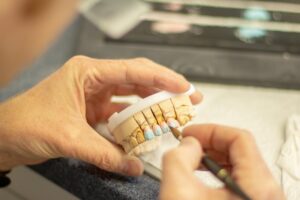Greece, the birthplace of Western civilization and the ancient Hippocratic Oath, has a rich tradition of medical education dating back thousands of years. Today, the country continues to uphold its legacy of medical excellence, offering aspiring doctors a unique blend of academic rigor, clinical experience, and cultural immersion. In this comprehensive article, we delve into the intricacies of studying medicine in Greece, exploring the educational landscape, training opportunities, and the enduring influence of Greek medical heritage.
Historical Legacy
The roots of medical education in Greece can be traced back to antiquity, with ancient Greek physicians such as Hippocrates, Galen, and Dioscorides laying the foundation for modern medicine. The Hippocratic Corpus, a collection of medical writings attributed to Hippocrates, remains a cornerstone of medical ethics and practice to this day. Throughout the centuries, Greece has been a center of medical scholarship and innovation, with renowned medical schools and centers of learning flourishing in cities such as Athens, Alexandria, and Constantinople.
Modern Medical Education
In modern Greece, medical education is governed by the Ministry of Education, Research, and Religious Affairs, which oversees the accreditation and regulation of medical schools across the country. Greek medical schools adhere to the European Higher Education Area (EHEA) framework, offering undergraduate and postgraduate medical programs that meet European standards of quality and professionalism.
Undergraduate Medical Education
The journey to becoming a doctor in Greece typically begins with a six-year undergraduate medical program leading to a Doctor of Medicine (MD) degree. Admission to medical school is highly competitive, with candidates required to demonstrate academic excellence, proficiency in Greek language (for Greek-taught programs), and a strong commitment to the medical profession.
The curriculum of undergraduate medical programs in Greece is comprehensive, encompassing basic sciences, clinical medicine, and practical training. Students undergo rigorous training in anatomy, physiology, biochemistry, pathology, pharmacology, and clinical skills, preparing them for the challenges of medical practice. Clinical rotations in hospitals and healthcare facilities provide students with hands-on experience in various medical specialties, including internal medicine, surgery, pediatrics, obstetrics, and psychiatry.
Postgraduate Medical Education
After completing their undergraduate medical education, graduates have the option to pursue postgraduate training in a specific medical specialty. Postgraduate medical education in Greece typically involves residency programs offered by hospitals and healthcare institutions accredited by the Greek Medical Association. Residency programs vary in duration depending on the specialty, ranging from three to six years.
During their residency training, medical graduates receive supervised clinical experience and specialized training in their chosen field of practice. They work alongside experienced physicians, participate in patient care, and engage in research and scholarly activities. Upon completion of their residency training, physicians are eligible to sit for specialty board examinations administered by the Greek Medical Association, leading to board certification in their respective specialty.
Clinical Experience and Professional Development
One of the distinguishing features of medical education in Greece is the emphasis on clinical experience and professional development. Greek medical schools maintain close partnerships with public hospitals, private clinics, and healthcare organizations, providing students with ample opportunities for clinical exposure and hands-on training.
Students benefit from rotations in diverse clinical settings, including tertiary care hospitals, community health centers, and rural clinics, gaining exposure to a wide range of medical conditions and patient populations. Clinical mentors and preceptors play a crucial role in guiding students’ learning, providing mentorship, and fostering professional growth.
Furthermore, Greek medical schools prioritize research and academic scholarship, encouraging students to engage in scientific inquiry and contribute to medical knowledge. Students have access to research facilities, laboratories, and academic resources, enabling them to pursue research projects and present their findings at national and international conferences.
Cultural and Academic Enrichment
Studying medicine in Greece offers students a unique opportunity to immerse themselves in the country’s rich cultural heritage and vibrant academic community. Greece’s rich history, archaeological sites, and natural beauty provide a backdrop for personal and intellectual growth, fostering a holistic educational experience.
In addition to academic coursework and clinical training, students have the opportunity to participate in extracurricular activities, cultural events, and community outreach initiatives. Greek medical schools organize seminars, conferences, and student-led initiatives that promote interdisciplinary collaboration, cultural exchange, and social responsibility.
Studying medicine in Greece offers a transformative educational experience rooted in a rich tradition of medical scholarship, cultural heritage, and clinical excellence. From the ancient teachings of Hippocrates to the modern practices of evidence-based medicine, Greece continues to inspire and educate the next generation of medical professionals.
Through rigorous academic training, hands-on clinical experience, and immersion in Greek culture, students embark on a journey of personal and professional growth, preparing them to meet the challenges and opportunities of modern healthcare. Whether pursuing a career in clinical practice, research, public health, or medical education, graduates of Greek medical schools emerge as compassionate, competent, and culturally aware physicians dedicated to the health and well-being of individuals and communities alike.





